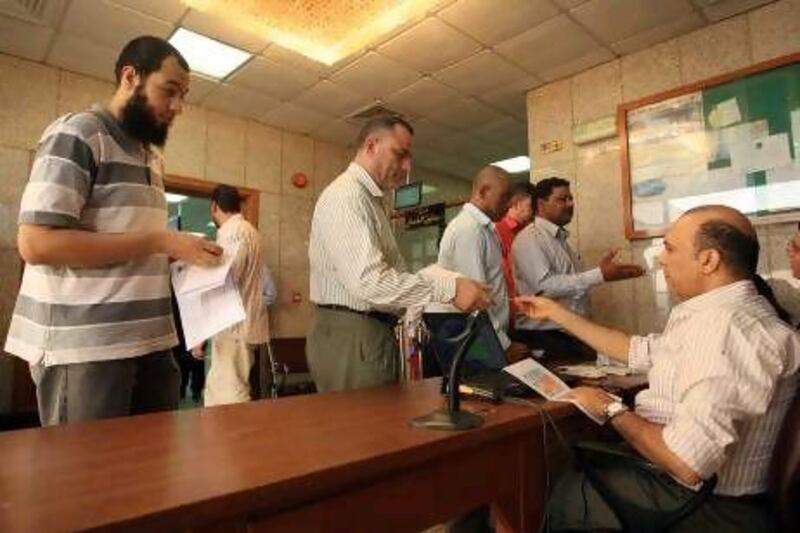ABU DHABI // He got as far as ticking the box next to Ahmed Shafiq's picture, and then he changed his mind.
AS, like many Egyptians voting in the capital yesterday in the second round of the country's presidential election, had been unsettled by the weekend verdict in the trial of Hosni Mubarak.
Mubarak and his former interior minister, Habib Al Adly, were convicted for their roles in the deaths of protesters, but police officials and two of Mubarak's sons were acquitted.
"No one was happy with the verdict," AS said, adding that the judgment brought back memories of Mubarak's corrupt and unjust regime.
And so, in fear that Mr Shafiq might bring the old system back, AS erased the tick mark he had made and voted instead for Mohammed Morsi.
"I don't want either," he said. "But after the verdict I don't want Shafiq."
Other voters said they had been similarly moved.
"People died, it was for a reason," one said. "We might not be religious, but at least Morsi will not do something unjust because he fears God."
Mr Morsi is the candidate of the Muslim Brotherhood, while Mr Shafiq was the last prime minister of the Mubarak era.
Most voters interviewed outside the Egyptian Embassy in Abu Dhabi yesterday had voted for Mr Morsi.
He won the support of those who had voted in the first round for either Abdel Moneim Aboul Fotouh, who left the Muslim Brotherhood last year and is believed to be a moderate Muslim, or Hamdeen Sabahi, the leader of the Dignity Party.
In the first round, Dr Aboul Fotouh received the most UAE votes, with 12,150. Mr Shafiq was fifth with 3,390 votes.
HR was among those voters transferring their allegiance from Mr Sabahi to Mr Morsi.
"A lot of people who voted for Hamdeen Sabahi will go for Morsi," he said. "We feel it was abnormal that Shafiq got so many votes, it was a surprise. We hope there will not be another surprise this time round."
Still, several people who had voted for Mr Shafiq in the first round said they would do so again, with these people believing the weekend verdicts to be fair.
But one voter, MA, said that if Mr Shafiq won, the country would be "set on fire". "Egyptians will find a way to get rid of him," he said.
Tamer Mansour, the ambassador, cautioned that the results from the run-off voting in the UAE alone, which closes on Saturday, were unlikely to give much of an indication as to who would be the overall winner.
"It is very difficult to tell, we cannot predict," Mr Mansour said, noting that turnout was higher overseas than in Egypt.
Of the roughly 61,000 people who had registered to vote in the UAE, 40,443 did so in the first round.






